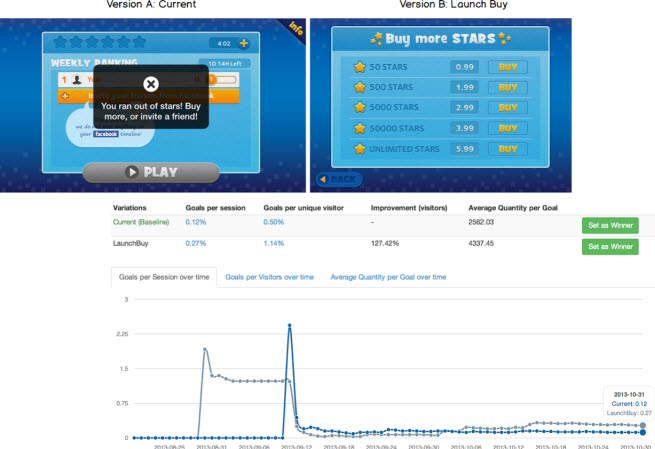Splitforce has embedded its user feedback testing, known as A/B testing, in Unity Technologies’ game engine, and it is taking the product to the Chinese game market.
The Beijing and New York company hopes that such testing, which helps a developer figure out exactly what gamers prefer inside a game, or where gamers stall or quit a game, will be enough to keep it above the fray in the overall analytics market.

Unlock premium content and VIP community perks with GB M A X!
Join now to enjoy our free and premium membership perks.
![]()

![]()